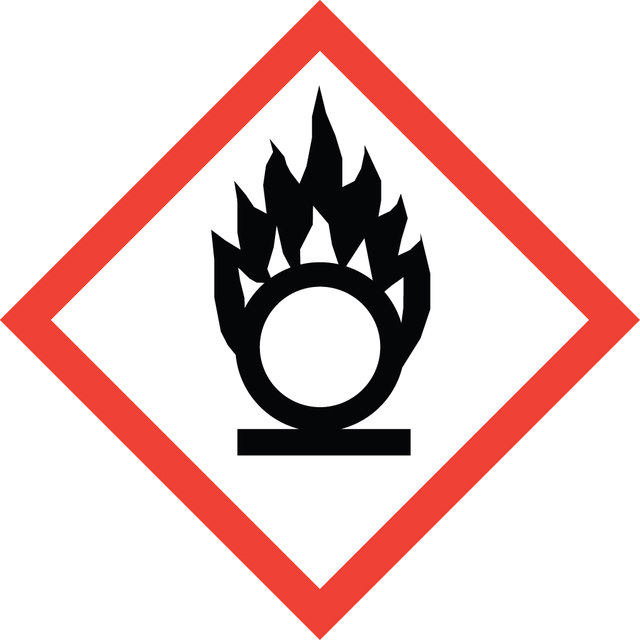Sign In to View Organizational & Contract Pricing.
Select a Size
About This Item
Linear Formula:
NaClO3
CAS Number:
Molecular Weight:
106.44
NACRES:
NA.55
PubChem Substance ID:
UNSPSC Code:
12352302
EC Number:
231-887-4
MDL number:
Assay:
≥99%
Form:
crystals or chunks
InChI key
YZHUMGUJCQRKBT-UHFFFAOYSA-M
InChI
1S/ClHO3.Na/c2-1(3)4;/h(H,2,3,4);/q;+1/p-1
SMILES string
[Na+].[O-]Cl(=O)=O
product line
ReagentPlus®
assay
≥99%
form
crystals or chunks
mp
248-261 °C (lit.)
Quality Level
Looking for similar products? Visit Product Comparison Guide
Related Categories
General description
Sodium chlorate exhibits piezoelectric effect. On heating, it decomposes to give sodium chloride and sodium perchlorate. It can be synthesized in laboratory by reacting chlorine gas with a hot aqueous solution of sodium hydroxide or sodium carbonate.
Application
Sodium chlorate (NaClO3) has been used in the preparation of aromatic amino acid and σ32 peptide (from Drosophila melanogaster) samples for NMR analysis.
It may be used in the synthesis of chlorine dioxide and sodium perchlorate. It may also be employed as a sulfation inhibitor in the culture medium of HepG2 cells ((human hepatocellular liver carcinoma cells).
It may be used in the synthesis of chlorine dioxide and sodium perchlorate. It may also be employed as a sulfation inhibitor in the culture medium of HepG2 cells ((human hepatocellular liver carcinoma cells).
Biochem/physiol Actions
sulfation biosynthesis inhibitor
Legal Information
ReagentPlus is a registered trademark of Merck KGaA, Darmstadt, Germany
signalword
Danger
Storage Class
5.1A - Strongly oxidizing hazardous materials
flash_point_f
Not applicable
flash_point_c
Not applicable
hcodes
Hazard Classifications
Acute Tox. 3 Oral - Aquatic Chronic 2 - Ox. Sol. 1
Regulatory Information
易制爆化学品
危险化学品
This item has
Choose from one of the most recent versions:
Already Own This Product?
Find documentation for the products that you have recently purchased in the Document Library.
Jung Ho Lee et al.
The journal of physical chemistry. B, 117(20), 6069-6081 (2013-04-09)
NMR is an extremely powerful, yet insensitive technique. Many available nuclear polarization methods that address sensitivity are not directly applicable to low-concentration biomolecules in liquids and are often too invasive. Photochemically induced dynamic nuclear polarization (photo-CIDNP) is no exception. It
Ludmila Abezgauz et al.
Journal of colloid and interface science, 342(1), 83-92 (2009-11-27)
Controlling the morphological characteristics of micellar solutions is important for surfactant performance and for achieving desired properties. In this work we study how monovalent anions of the lyotropic series affect micellization, micellar transitions, and micellar growth of the cationic surfactant
C Oelschlaeger et al.
Langmuir : the ACS journal of surfaces and colloids, 26(10), 7045-7053 (2010-02-26)
We have studied the effect of counterion binding efficiency on the linear viscoelastic properties of wormlike micelles formed from hexadecyltrimethylammonium bromide (CTAB) in the presence of different nonpenetrating inorganic salts: potassium bromide (KBr), sodium nitrate (NaNO(3)), and sodium chlorate (NaClO(3)).
Wei Lan et al.
Journal of hazardous materials, 162(1), 174-179 (2008-06-27)
A composite inorganic polymer coagulant, polyferric aluminum chloride (PFAC) was prepared by using hydrochloric pickle liquor and calcium aluminate as main materials. The optimum conditions for preparing PFAC with the hydrochloric pickle liquor and the calcium aluminate were studied. The
Fei Wang et al.
Chemosphere, 89(8), 1009-1014 (2012-08-18)
Understanding the interaction of perfluorochemicals, persistent pollutants with known human health effects, with mineral compounds in surface water and groundwater environments is essential to determining their fate and transport. Kinetic experiments showed that adsorption equilibrium can be achieved within 48
Our team of scientists has experience in all areas of research including Life Science, Material Science, Chemical Synthesis, Chromatography, Analytical and many others.
Contact Technical Service

